|
This blog has migrated to Substack – subscribe here:
https://alisa.substack.com/welcome
Thank you for your continued support of my writing!
0 Comments
This summer, an unconscionable issue happened to my TV watching schedule: the uber-loud, sloppy 4-hours-a-week show about sexy people trying to find love in a house on a beach was being moved to the same night as my quiet, messy one-hour show about sexy people trying to find love in a house on a beach. Listen, when I was in a relationship with television this would not have been the issue it is Today. But when you live with another human being you have to manage yourself mmmmk? I had to CHOOSE the order in which I would devour my trash and this system is not built for restraint. I'd never watched MTV's Are You The One? before this summer, but somehow my Twitter algorithm knew I'd be hooked on a show about sixteen sexually fluid contestants flung together to be dramatic and lovey and figure out who they were paired with by a crack team of unidentified matchmakers. Bachelor in Paradise, on the other hand, has been my summer companion for these four years or so. I even recapped the behemoth last summer. It's about the rejects from recent (and not-so-recent) seasons of The Bachelor and The Bachelorette, getting drunk and hooking up and yelling and secretively-but-actually-very-very-transparently manipulative. Other than a few token contestants, everyone is very very straight. Any engagements that happen at the end of the season are strictly offered by the man in the relationship to the woman. So discovering AYTO? was like a balm, a breath after the rigidity of the utterly heteronormative BIP. This season BIP offers Demi's same-sex relationship as a vote for love, but AYTO is like that times eight. Like that times a hundred. Like that times infinity. Not to mention that BIP is the Mille Borne of dating shows - it's every man for himself, every woman for herself, either trying to make a relationship work or trying to display a big enough personality to warrant Instagram followers for a good post-show boost. (On the rare occasion, the next Bachelor could be chosen on these shores.) On the flip side, AYTO reads like one of those cooperative socialist board games that requires everyone to either win or lose. Either everyone finds their Perfect Match and they win the money, or they don't. And they're so much NICER for god's sake. Even when it comes to the shows' Venn diagram of archetypes, I have infinitely more patience for one camp over the other. Both shows have the apologetic multiple offender: Blake (BIP) enters Paradise as the hottest ticket and is now getting a bad rap for his actions before the show started: hooking up with multiple women within a 24-hour period, texting multiple women, and then trying to appear on the show without those actions having any bearing on the outcome. Meanwhile, Kai (AYTO), a transmasculine person who identifies as nonbinary, also entered the house as one of the most desirable contestants. In fact, he hooks up with two people on the same night WHILE ON the show. Nour and Jasmine (see gif above) almost come to blows over the drama he causes. While their actions are comparable and both parties come off as selfish, Blake (whether by the producers' hands or otherwise) comes off as careless and stupid while Kai comes off as ... almost sympathetic. Being a trans person, he admits that until recently he didn't find himself attractive and now the constant validation from multiple people wanting him is throwing him for a loop. A free-for-all, let's-hook-up-with-everyone loop. Call me a sap for insecurity, but I found that a lot more convincing than a guy who just thought he could get away with it. Wells, a previous contestant on BIP who now bartends for the current contestants, WISHES he could dispense the incomparable life advice that Basit effortlessly gives out to anyone with any sense in the house. Oddly enough, both shows have a Boom Boom Room, for boom-booming. Wanna guess which one gets more action? I'll give you a hint: It featured a fivesome this season and rhymes with Shar Shou She Shwon. Not to mention, watching AYTO is when it finally hit me why the pronouns currently in American usage are inadequate. I'm watching these people and thinking, "No, this is not he, nor is this a she." There is a crossover space where neither works for a specific person. And let me tell you, it's making me think really hard about how I want to raise my kids and how to present an attitude toward gender that isn't restrictive. It's hard to imagine having that conversation centered on BIP, where the only woman with hair shorter than her shoulders is the lesbian. Where the men are working out by lifting weights and the women only do cardio. Where the lines of gender are written into the rules of rose giving and cute little Demi is giving out the only long-stemmed rose to Kristian on a night of buttonholes. You may ask, why doesn't she just watch AYTO? Why does she continue with the tomfoolery of BIP? Well, nation, I don't really have an answer for you. I was rooting for people on last year's BIP and the one before that - have you seen Raven and Adam lately? they're adorable! - so what am I still doing with FOUR HOURS A WEEK. Maybe it's because when an extremely shy guy finally works up the courage to kiss the woman he likes, the editors do this (start at 4:56): Or maybe it's because a guy can leave to go LIVE IN HIS VAN, then come back and ask the woman he was in a relationship with to come away with him into the sunset. (I legit don't know what she's going to do, the next episode hasn't aired yet): Or maybe it's just really fun to try and figure out how much of this show is the producers' storyline, how much of it is the contestants trying to engineer their own storylines, and how much of it actually genuine and authentic. Because if there's something I can't resist, it's the metafictional narrative of people knowing they're on a reality show trying to pander to that experience. That's something you won't get from a nice group of people trying to soul search so that they can be open to love. Sometimes you just want a bunch of selfish people willing to bodyslam another person for attention.
For more information on why I'm fascinated by people with big personalities being punished for it, please see my sister's wonderful article on the subject: https://aeon.co/essays/is-reality-tv-a-kind-of-bite-size-greek-tragedy An appreciation post for Betty Gilpin's character on GLOW, Debbie Eagan. Minor spoilers? Maybe some screenshots from season three in addition to vague references. Oh wait, I talk about her relationship in this season a bit. Oh, hello! I just finished GLOW's third season. Between the Sheila, Carmen and Bobby of it all, I'd like to express appreciation for the female character currently on television with whom I'd never want to be friends but who I can't help but admire. Debbie is a former soap star turned sports entertainer (re: wrestling with a pre-planned storyline) turned producer. She is beautiful; when she gets dressed it looks like she had three Kardashian stylists to help her; and she doesn't have an ounce of sympathy anywhere in her toned post-baby body. By any account, Debbie's grievances far outweigh her ambitions. Because of this, she takes power, even if she doesn't know what to do with it. She's surrounded by idiots and uses their stupid reactions to her good looks and status to get MORE out of them. She unabashedly steals people's ideas - from her wrestling character to her producing aspirations - and then proceeds to milk them for all they're worth. The worst thing you can do to Debbie is underestimate her. Her husband (Rich Sommer) underestimated her, so she turned their house into a flea market. Bash (Chris Lowell), the man-child who bankrolls GLOW, underestimated her and so she became a producer herself to put them on equal footing. Her boyfriend this season (Toby Huss) underestimated her so she scooped him on a big deal she knew he was low-balling. So no, Debbie is not a nice person. It's possible that after Ruth (Alison Brie) betrayed her in the first season that she's forgotten how to have friends. Even in the deep, heartwarming conversations she has with coworkers like Cherry (Sydelle Noel) and Tammé (Kia Stevens), they're only really talking about one thing: being a mother.
But in the midst of watching every good-looking female Democrat in this country trying to kick start a presidential campaign - in the midst of watching all of them doing their darndest to look as friendly and nonthreatening as possible - in the midst of watching them all try to present as unHillary as possible - in the midst of watching women trying to be submissive to prove that they can dominate - it feels really good to watch a female character who doesn't care what it looks like when she takes what she wants. This week I saw a quiet movie: Lulu Wang's The Farewell. Billi (Awkwafina, in a dramatic turn that plays like penance for her caricature in Crazy Rich Asians) is a Chinese-American twentysomething whose beloved grandmother gets cancer, but the family decides not to tell her. Billi and her family fly from America and Japan respectively to spend time with Nai Nai (Shuzhen Zhou) in China under the guise of a quickie wedding. She gets time to spend with Nai Nai around the festivities, getting life advice, playful ribbing and a bit of tai chi training. (Their relationship is seriously adorable, from their affectionate opening phone conversation - riddled with little white lies - to the final parting shot.) With her unchecked emotions and broken Mandarin and not-money-centered ambitions, Billi and her American sensibilities have a hard time accepting that the Chinese contingent of the family is doing the right thing in not telling Nai Nai about her condition. They make some pretty solid points:
What if it's the fear of dying that kills Nai Nai, rather than the cancer itself? Is it not just easing their own guilt in passing the emotional burden of knowledge on to her? Is it not their duty as her family unit to bear it? Twice in the course of the story, Billi finds a little bird in her room - in her apartment in New York and then again in her hotel in China. Both times the bird escapes while she's looking the other way. In the last moments of the film, Billi is home on the streets of New York when she echoes the "HA!" of Nai Nai's tai chi instruction, startling a whole tree of birds out of their perch back in China. While I wouldn't call the symbolism subtle in any way, I am struggling with its meaning. If we were dealing with a conventional young female protagonist, the birds would represent Billi's innocence, which might be linked to her sexual maturity in some way. But in spite of several instances of being asked if she's married or in a relationship, we actually don't know anything about Billi's love life. It's a non-factor in The Farewell. What a refreshing change from literally every other coming-of-age film centered on a young woman. So what then changes in Billi? S P O I L E R S : After questioning her father, her mother, her aunt, her cousin, the doctor, and basically every one else she can, Billi ultimately makes the choice to help shield Nai Nai from her diagnosis. Upon realizing that Nai Nai's aide has gone to pick up test results, Billi runs at full speed to the hospital to stop the report from getting back to her grandmother. She even helps the aide change the report to read as benign. (If that wasn't answer enough regarding the film's opinion on the ethics of the situation, a postscript shows the director's real life grandmother doing tai chi with the caption: Six years after her diagnosis, Nai Nai is still with us. To me, that answers the question of "Should the family tell Nai Nai about her cancer?" with a resounding HELL NO LOOK SHE'S STILL ALIVE BECAUSE SHE DIDN'T KNOW ABOUT IT where I thought some ambiguity would have had a more powerful sendoff.) Between Billi's decision to join her family in their subterfuge and coming to understand her parents' understated (anticipatory) grieving, as well as using the tai chi she learned to do something other than humor Nai Nai, a lot of the film is concerned with Billi accepting her Chinese heritage and culture. I appreciate that she returns to New York - there was a point where she wanted to stay in China - because it's the only sign that who she became in America is still valued and should be integrated with what she's learned. But I don't think the birds represent acceptance of her culture. She's losing one bird at a time, then all of them, suddenly, in her eureka moment at the end. Is it acceptance of herself? I think it might be the release of her guilt. She's dealing with the disappointment of losing out on a fellowship, disappointment in her parents for what she perceives as failing Nai Nai, disappointment in herself, until she allows herself to release all of the guilt and accept the decisions they all made with agency. Of course The Farewell reminds me of my grandmother, the one who passed away a few weeks before my wedding. Maybe that's why I was bitter about the ending, the little postscript about how the real Nai Nai is still alive. We flew out to Israel to see my Savta in the hospital when we heard she wasn't doing well. For five days, she was too weak to open her eyes or do more than squeeze your hand. On Friday night, Shabbos, we ran for forty-five minutes for a scare that was resolved by the time we got there. The next night, our last one in the country, we went to see her again in the hospital and there she was, sitting up, eyes open, trying to speak past the rattling in her chest. She met my fiance for real. I held her hand as much as I could, because we were leaving the next day. And two days later she had passed. The scene at the end of The Farewell when Nai Nai has her hand on the cab as it pulls away, trying to hold on as long as possible, and then seeing her through the back window of the cab, was unspeakably sad to me. It's hard to know how much you can do in any given situation, but it was nice at least to see a film where the options are all within the characters' power. It's just up to them to make the decision. 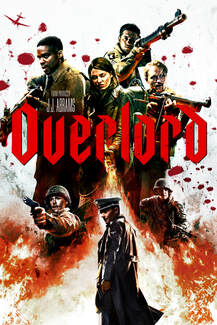 So you wanna watch Overlord (2018). J.J. Abrams + Nazis + Zombies + Video Games + Final Boss + Three Different Languages + POV Camera Work + Black Protagonist + One Woman (two if you count the ten second snitch, three if you count the zombie, four if you count the one that's literally a talking head and spinal cord) + Lots of Exploding Bodily Fluids + Lots Of Spitting Take a shot every time there's spitting. (There's a lot of spitting.) Also playing off the Nazi human experiments, but it's all French people. This is World War II and there is no mention of Jews. If we could lay claim to a war, should it not be the Holocaust one? Do we not get to throw around the 6 million figure whenever possible? In Overlord there's a Jewish soldier which we know because he's skinny and pale and his name is Rosenfeld, and yet he is played by an actor whose name is Dominic Applewhite. Like, non-Jews playing Jews is not my issue, it's not the hill I'm gonna die on, but do we have an issue, Mr. Abrams? Is there something you wanna add to the agenda at the next Elders meeting? That's about all I need to say about this movie. It has 81% on Rotten Tomatoes. Spoilers for Veronica Mars, season 1. Did I ever mention how I'm really good at retaining stories? I'm a slow reader, which is annoying in the sense of Goodreads Reading Challenges/taking AP classes/acquiring mastery of literally anything, but helpful in that I tend to remember what I read. Images from movies and television also stick with me for a long time. 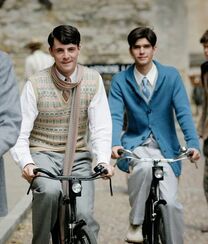 For The Goode Of Mankind For The Goode Of Mankind Well, not always. I've found that good writing is not necessarily memorable writing. One of my favorite books, Brideshead Revisited, is a masterpiece of British understatement. But even with the sexy Americanized film version - MATTHEW GOODE IS IN IT, FOR CHRISSAKE - I'd be hard-pressed to remember exact plot points other than "class divide." Also, feeling weird about Ben Wishaw playing his character so flamboyantly when it was only implied in the book? Maybe?? I DON'T REALLY KNOW and it's only mildly frustrating that I loved a book so much (slash was impressed with myself for reading High Literature) but can't remember exactly what happened. On the other hand, I saw Miss March in theaters that same year and I still remember the rapper character's name. In all fairness, his name was an island of profane brilliance in a sea of boring, derivative turd-dom, so. THAT IS TO SAY: Memorable writing is not necessarily good writing. I do judge works on whether or not I remember them five years later, but even my favorite pieces sometimes fail in that regard. Maybe that's why chick flicks put so much emphasis on distinctive fashion and drag queens are obsessed with creating catch phrases. Even if the story isn't strong, it will succeed if people remember ... something. REGARDING VERONICA MARS: I devoured it. Not in real time, but after it finished airing, when I was in college. I skipped naps to watch episodes. I ignored my Latin homework to watch episodes. I couldn't get enough of the first season. The second season was a downgrade, and by the third it was a question of putting it out of its misery. The movie Kickstarter happened. I came, I watched, I got the T-shirt. And it was ... fine. THE THING IS: I barely remember any of it now. I remember Mac being cool. I remember Duncan being lame. I remember Keith Mars being a surprise, because I was expecting a wet blanket like Bella's dad from Twilight. And an absentee alcoholic mother? And Schmidt from New Girl? So the details for me are decidedly murky. There was usually a mystery of the week, in addition to a big overarching mystery that held personal significance for our precocious young detective, who got less precocious and more sad and traumatized with every passing season. Veronica Mars herself was a groundbreaking character, but the show had plenty of inspiration from predecessors like Buffy the Vampire Slayer and more traditional noir mysteries. The stories were complex but not entirely original. What I do remember, however, is how I FELT watching Veronica Mars. And I can't understate what a feat it is to have an indelible, signature emotion associated with your show. I think that's why campaigns to revive it have been so successful, first with its record breaking crowd sourcing on Kickstarter, and now with this new development on Hulu. The feelings of frustration when Veronica was undermined, the worry when she was in danger (SLASH PUT HERSELF INTO DANGER. AGAIN AND AGAIN.), getting in on the satisfaction of that smug grin when she solved a mystery or got in a decimating wisecrack. The success of Veronica Mars lies in how it makes the audience feel. And even though the feeling I associated most with the movie follow up was "meh", it's really impressive how the creators crafted stories that truly resound with their audience. MY FAVORITE BIT: I cannot for the life of me remember why adult Jonathan Taylor Thomas was pretending to be a high school students with, like, nukes or something, but I can tell you I've watched that scene again and again because of what I do remember. After Logan comes to the rescue, there's a moment when Veronica comes out of the motel room and I thought she was gonna just walk by him without acknowledging how great he'd been. They weren't "allowed" to be together for some reason, maybe something to do with Duncan still being gone and Logan being kind of terrible? But I do remember thinking they should be together. And really, really wanting Veronica to say thank you to him, to open up a bit whatever had been keeping her from falling for him. I thought she was going to ignore him on her way out. But instead of doing any of that, SHE KISSED HIM. The joy I felt, the legitimate rush of endorphins, after that buildup and thinking she was going to leave without saying anything and really wanting her to, was incredible. So yeah. Maybe I'll watch the Hulu season. We'll see. I'm a pop culture enthusiast with oft-encyclopedic knowledge of current entertainment. I like to say my primary relationship in my twenties was with television. Because of that, specific TV shows have come to define phases of my life. When I remember my college years, it's with the tone of both The Good Wife's postmodern feminism and Gossip Girl's fashionable exclusivity. High school is about the personality and creativity of Project Runway, in conjunction with the jerk appeasement of House's minions. These shows had a prevalent influence on the way I thought about culture and what story was capable of as an art form. They taught me about what's possible when a show has a strong voice - from its writing to its aesthetics. So it was with more than a little shock that I realized four of the most influential shows of my millennial adult life are coming to an end in 2019: BROAD CITY My Jewish sisters created a masterpiece of unpredictable comedy. It's hard convincing people to watch this show - remember how the premiere had Abby Skyping with a mid-coitus Ilana? But it was that precise sense of sexual freedom, coupled with what is almost a neo-hippy free love, that somehow, magically, appealed to every walk of life. It's such a sweet show. It's also authentic and a great example of a small story having big payoff. Like You're the Worst, Broad City has distinct characters whose actions and decisions are always based in their uniqueness. The comedy petered off somewhat in the last couple of seasons, but I will never not be grateful for this clip: CRAZY EX-GIRLFRIEND Straight up: I haven't watched CXG with any real consistency since Season 2. When the show started it felt like all of my insecurities and idiosyncrasies had been copied and pasted onto the screen. But as it progressed and Rebecca Bunch's antics were less slice-of-life and more melodrama, the "crazy" became less and less nuanced and I didn't feel the need to watch every episode as soon as it was available. Nonetheless, I still think of this show as a sample of how autobiographical work has to push the envelope in order to develop into something new. (Don't ask me about the finale, my brain is refusing to process it.) YOU'RE THE WORST The huge draw of this bad-people-dating-each-other show was the writing (duh) and how each character was super distinct, articulate and terrible in his or her own way. There was a little bit of superiority baked in, since we're obviously better than the characters we're watching. But one of the things this show did best was the one-upmanship. Scenarios getting bigger and bigger, more and more ridiculous. It was massively entertaining. But somewhere around the focus on Gretchen's mental health and Lindsay's solo "abobo" decision, the show started trying to one-up itself, which ended up being its undoing. The finale, though, was satisfying in ways that the last couple of seasons weren't. GAME OF THRONES Last but not least, the juggernaut that took over the world. It was not easy to love this show. It was long, there was a gigantic map I was supposed to understand, my loved ones died all the time, and I didn't care about the same things everyone else on this planet cared about. (See: After Ned Stark, Catelyn- and Robb's deaths didn't feel monumental, the rape scenes felt par for the course and a weird thing to get stuck on, the boobies were unremarkable.) But it's an epic story. We make allowances for ambition. After sludging through the past couple years, Season 7 picked up the pace and promised delivery on many, many story threads. Season 8 starts this Sunday and man, am I ready for the catharsis of conclusion. As entertainment these shows provided escapism, of course - good laughs and good suspense in turn, occasionally at the same time. But for me they were also a workshop on how to make things matter. One of the aspects of writing I struggle with the most is making people care about your characters and what happens to them. Maybe I'll throw in a dragon or a musical number next time, see how it feels.
But that's part of the problem, isn't it? That you can be devastated by a person's death. A person could die, of cancer, or by choice, and you're devastated about it. Your own life comes to a halt. You can't do the basic things you thought you'd be able to do when you thought about today yesterday, because today is different. Today is different because that person died. But that takes you to another part of the problem, which is that the sun is shining and the world is turning and you want to be thankful for the life you still have. You want to reaffirm your devotion to your life. But you can't. You can't bring yourself to appreciate the life you still have. And that mourning gets wrapped up in the fact of the mourning of this person who died, this person who you're going to miss.
I don't know if Showtime's brilliant show "Kidding" developed before or after Jim Carrey was cast. What I do know is that the character he plays, Jeff Pickles, is a very poignant followup to what looks like, from the outside, as Carrey jettisoning his career. Take this interview from September 2017, in which he gleefully expounds on his existential ennui to a panicked E! announcer: There was a narrative surrounding Carrey at the time. This happened two years after his ex-girlfriend committed suicide in 2015. Her family was blaming him for it, trying to sue him. It was in the midst of a popular belief that Jim Carrey had lost it a little bit. Poor, rich celebrity, dealt a bad hand and unable to contend with problems that can't be solved with money.
On "Kidding", which just wrapped up its first season on Sunday, Carrey plays Jeff Pickles, a Mr. Rogers-like character on a children's TV show. The pilot takes place a year after one of Mr. Pickles's identical twin boys (Cole Allen) is killed in a car accident. Mr. Pickles can't seem to deal with the loss head-on and so it manifests in violent ways. This is Carrey's first acting credit since 2016, which technically means he probably hadn't acted since 2015 - the time of his personal life tragedy. It's impossible that the creators of the show didn't take the similarities into consideration. It's impossible that they didn't intend for Mr. Pickles's struggles to inform and be informed by Jim Carrey's real life struggles. The role is so perfect for a celebrity looking to comment on his own celebrity through the medium of acting. It's perfect for Jim Carrey to use Mr. Pickles's gentle demeanor with the children who watch his show as a metaphor for what's good in his life and needs to be protected; juxtaposed with the violent outbursts he has over the course of the show as a demonstration for what happens when that's all you see; juxtaposed with the very real sentiments he expresses about love, loss, loneliness, mistakes, and the failure of our loved ones to protect us from harm, given over in several very literal monologues on "Kidding." There were very few times watching "Kidding" that I remembered Carrey as a celebrity and not as Mr. Pickles, yet his history imbues the messages he preaches with sublime duality. Similarly, Lady Gaga was very clearly cast in "A Star Is Born" because she is Lady Gaga. Certainly this makes sense, seeing as the film is centered on the singing and songwriting ability of her character, Ally. While Ally and Stefani Germanotta have different lives insofar as Ally is from California and Gaga is from New York, watching the film I couldn't forget that I was watching Lady Gaga Without Makeup; Lady Gaga In Orange Wig; Lady Gaga In Gold Lamé Flamenco Dress (even though she'd never wear that in real life). Much has been made of Bradley Cooper's transformation for his role as Jackson Maine: how he developed his voice, aged his appearance, and got a tan. I was taken in by his performance. Cooper is an incredible actor. (Side point: he should not have starred in his directorial debut, there was way too much of his face taking up the screen.) It is no accident that the casting of Lady Gaga and the stories about her first duet together with Cooper and how he mauled her face with a makeup wipe is what dominated the media narrative. I wouldn't be so cynical as to call this stunt casting, but Cooper hand picked Lady Gaga to star opposite him, and that is what he got. The question, as always, is whether the decision serves the story. Is "Kidding" better because Jim Carrey suffered in a similar vein to his character? Are the unique vocals displayed in "A Star Is Born" worth a lesser quality of acting? On a more simplistic level, did the viewer benefit from the gamble or did it become a distraction to the detriment of the final product? By this point of my virtuous rant, you should have my answers already. Spoilers ahead for this bonkers movie, but it's not like I'm necessarily making a recommendation to see it, so proceed at your fancy.
First off, until the title card showed up about seven minutes into the film, I thought the name of the movie was "Bad Times at the El Camino" as if this was some Fear Street chronicle about a gangster car where everyone's having a good time until they all die. God I've been in the automotive business for a hot minute. So the El Royale is this formerly glorious gambling spot that straddles Nevada and California in both location and over the top decor (rooms in California are $1 more), and this is where our players congregate in the mid-seventies. We've got Jon Hamm chewing the scenery as a vacuum salesman who's really an FBI agent, Jeff Bridges as a priest who's really a gangster ex-convict who's losing his mind, Dakota Johnson as a hippy with a blowout that must have cost $300, and Thor as a cult leader who can belly dance. From the lesser-known casting cadre there's a hotel clerk/junkie/snitch named Miles and a black singer who sings so much in this movie that I caught myself meditating. I realize that on paper this may sound like a lot of plot but if that's the case then why did the majority of the 2 hour, 22 minute run time feel like a buildup? I did not need to hear Jon Hamm talk about his accoutrements five times in his hacky accent. I did not need to hear Miles try to confess on four different occasions just to find out he's an altar boy with PTSD from Vietnam. I definitely did not need that horror movie music when there was no horror. But I'm not saying there isn't payoff here. The place burns down in the third act. We've got a crazy 14-year-old murderer on the run, who has been kidnapped by her sister Dakota in order to be saved from cult leader Thor. But wait! The El Royale is no ordinary hotel, it's a pervert hotel. (Well really a blackmail hotel but try explaining that when Thor's got a gun pointed at your head.) Every hotel room has a big gigantic one-way mirror for Miles to keep an eye on people and report back to management. Jon Hamm finds the other side and witnesses Dakota tying her sister up, so he interferes against FBI orders and unties Baby Dakota and then Big Dakota shoots him and Baby Dakota calls cult leader Thor to come get her and all hell breaks loose. But then there's a lot of plot points that have ZERO PAYOFF. Where is the FBI raid after their agent is killed? And what was with racist Jon Hamm in the beginning? Was that just to make Darlene even more sympathetic? She's pathetic enough. Also, the black singer is played by CYNTHIA ERIVO OF THE ORDER OF THE TONY. I guess that's why there was literally twenty minutes of her singing a capella in this movie. I hate to insult a Knight of the Tonys, but Cynthia Erivo did not play Darlene well. Removing your wig to reveal a teeny weeny afro does not make you Viola Davis. I'm sorry. I will go hide under a rock. I need to reiterate that this was not a good movie. But it is the first time in an extremely long time that I had absolutely no idea what was going to happen. All these moody silences, moody singing, moody comic book-like lighting out in the rain - you think you know where it's going, but you don't! Priest Jeff Bridges is about to drug Darlene's drink so that he can tear up the floorboards in her room and get the money he went to prison for. Instead, just as he's turning around, she wacks him across the head with a champagne bottle. I was stunned! And then Thor is actually a very good cult leader! I would like to join the cult of Thor, please, minus the pedophilia and violence. In the end, Jeff Bridges and Darlene are the only ones who make it out alive, proving this to be a very moralistic tale. Darlene has been downtrodden her whole life but she's been virtuous, so she gets to survive, and Priest Jeff Bridges doesn't remember his own name, let alone his crimes, so he survives. (Side point: is she now his caretaker? Was this all a racist end after all?) Even poor Miles dies, and I was never sold on the idea that he was a junkie. If I'm not mistaken: Thor kills Dakota. Miles kills Thor (and henchmen). Baby Dakota kills Miles. Priest Jeff Bridges kills Baby Dakota. And ... that's it, I think. That's the movie. It feels like a bunch of cool parts from other movies transplanted into this one with some humming to fill the time. So if you need to fill your time and can't handle Tarantino levels of violence, consider "Bad Times at the El Camino." |
Thoughts with AlisaCurrent writing on pop culture. Also known as my post-graduate school writing motivation. Archives
July 2020
Categories
All
|
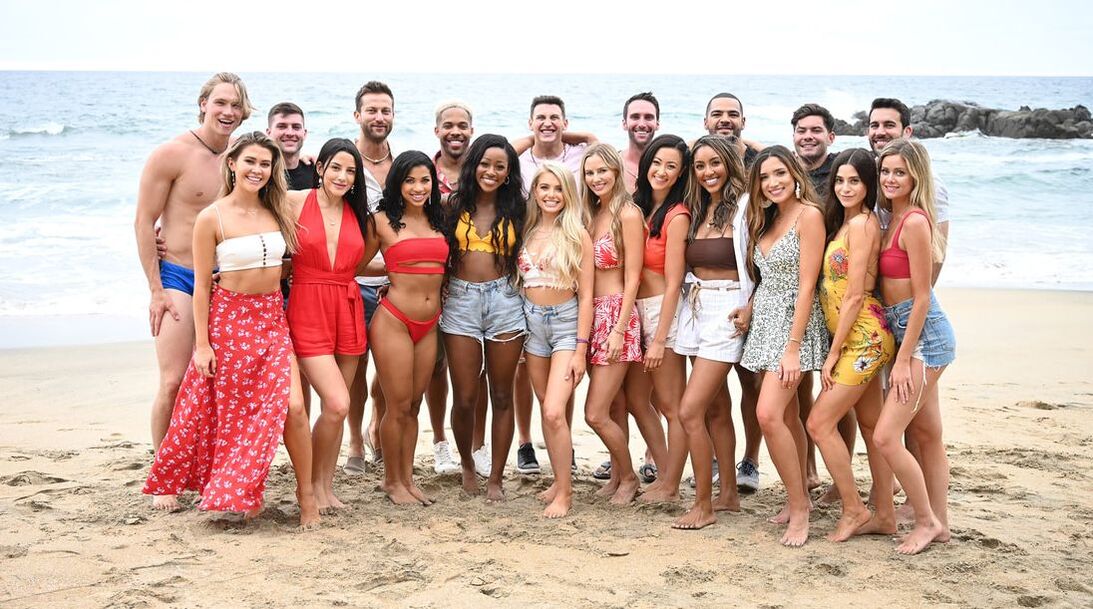
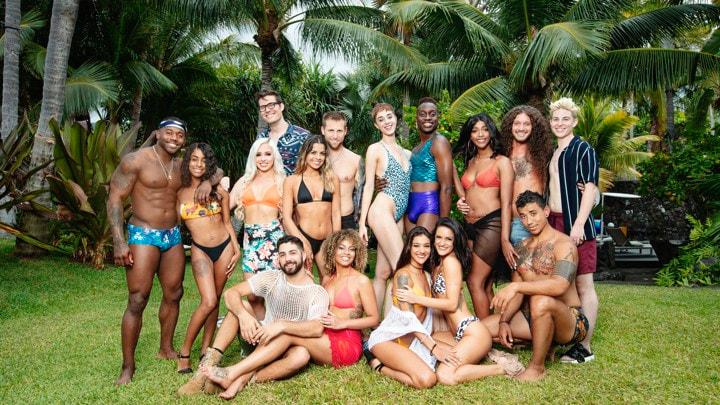
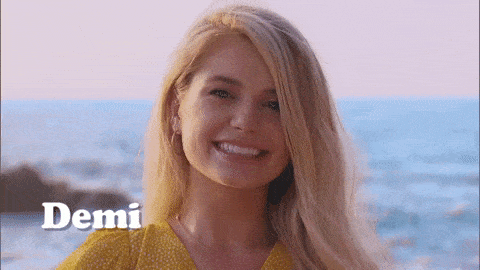
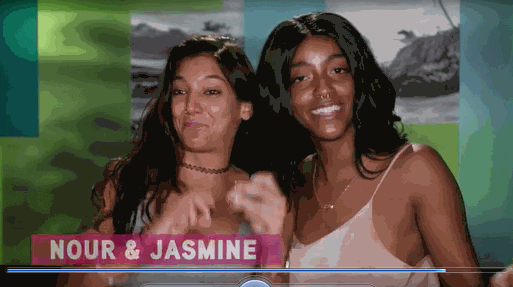
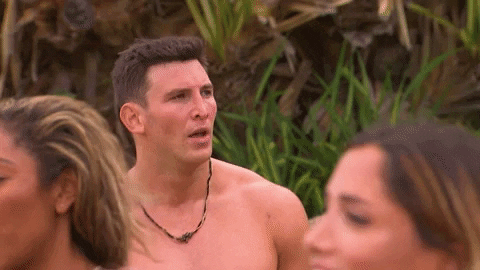
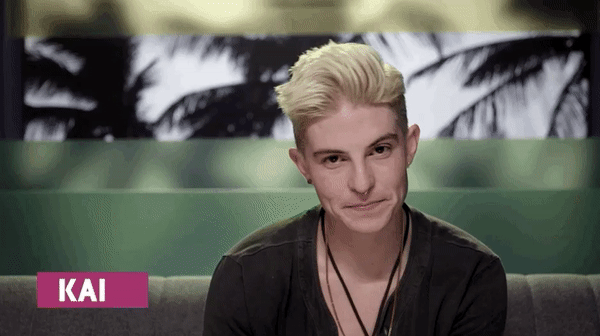
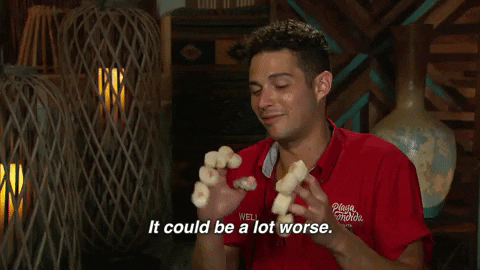
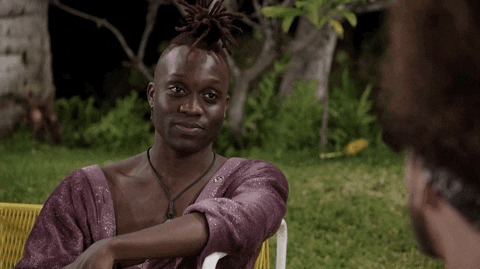
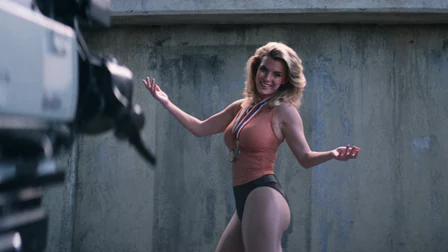
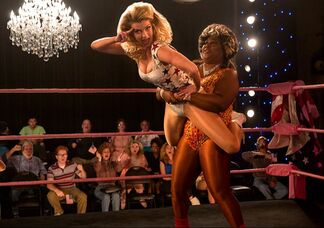
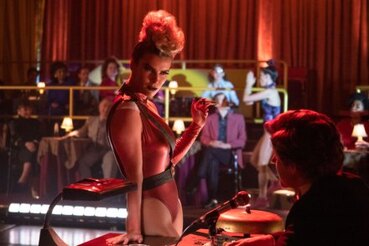
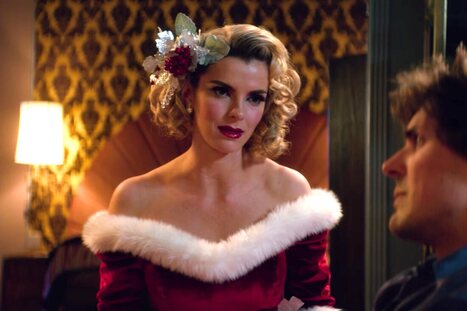
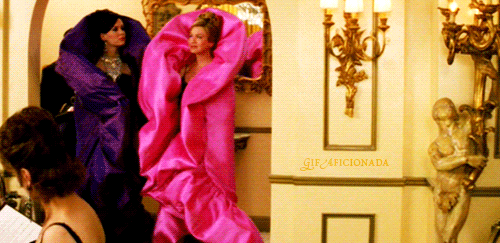
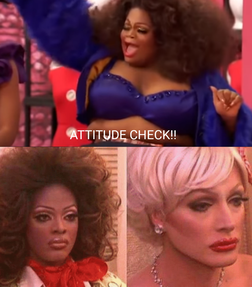
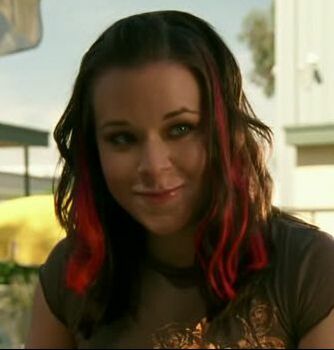
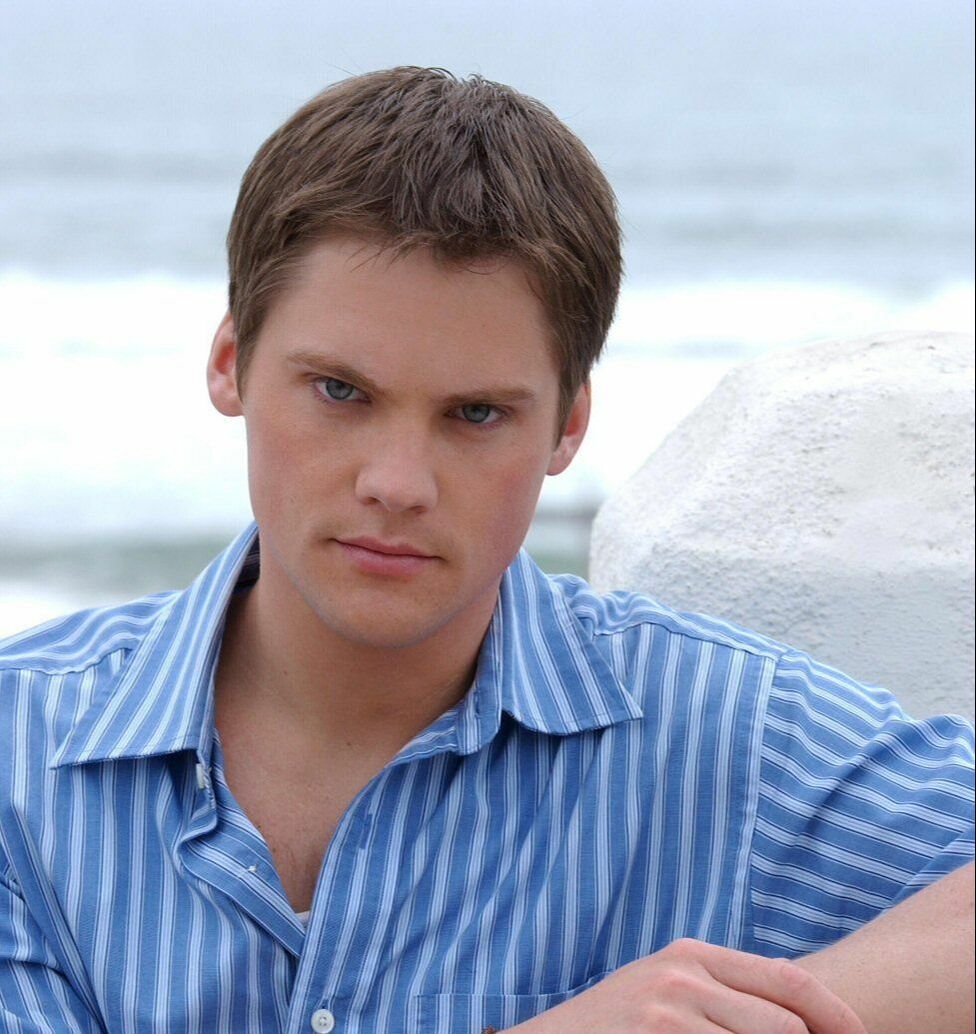
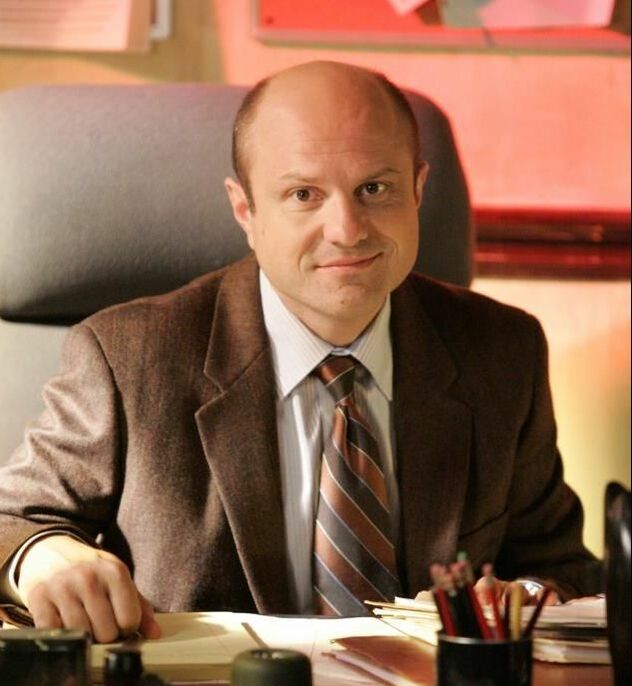
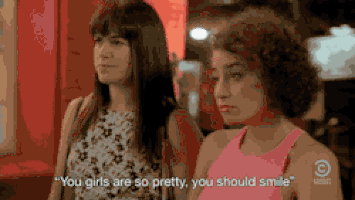
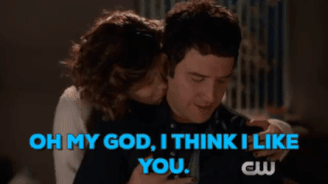
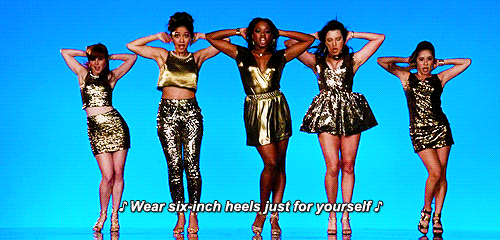
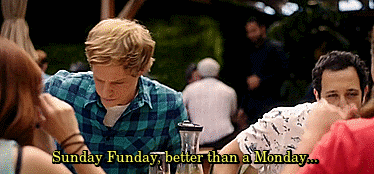
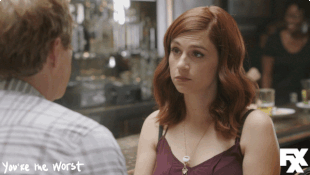
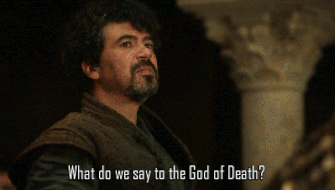
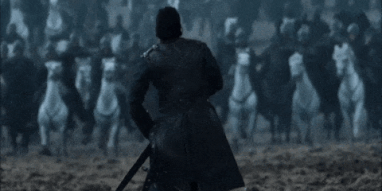
 RSS Feed
RSS Feed